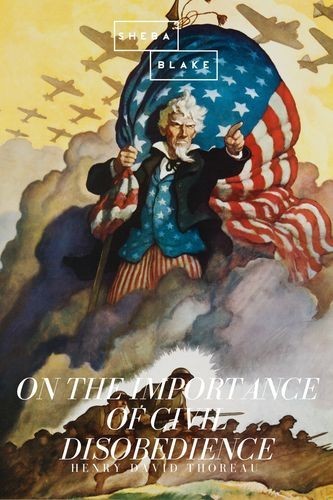- Ebook

On the Importance of Civil Disobedience is an essay by American transcendentalist Henry David Thoreau that was first published in 1849. In it, Thoreau argues that individuals should not permit governments to overrule or atrophy their consciences, and that they have a duty to avoid allowing such acquiescence to enable the government to make them the agents of injustice. Thoreau was motivated in part by his disgust with slavery and the Mexican–American War (1846–1848). Thoreau asserts that because governments are typically more harmful than helpful, they therefore cannot be justified. Democracy is no cure for this, as majorities simply by virtue of being majorities do not also gain the virtues of wisdom and justice. The judgment of an individual's conscience is not necessarily inferior to the decisions of a political body or majority, and so "it is not desirable to cultivate a respect for the law, so much as for the right. The only obligation which I have a right to assume is to do at any time what I think right.... Law never made men a whit more just; and, by means of their respect for it, even the well-disposed are daily made the agents of injustice." He adds, "I cannot for an instant recognize as my government [that] which is the slave's government also." The government, according to Thoreau, is not just a little corrupt or unjust in the course of doing its otherwise-important work, but in fact the government is primarily an agent of corruption and injustice. Because of this, it is "not too soon for honest men to rebel and revolutionize." Political philosophers have counseled caution about revolution because the upheaval of revolution typically causes a lot of expense and suffering. Thoreau contends that such a cost/benefit analysis is inappropriate when the government is actively facilitating an injustice as extreme as slavery. Such a fundamental immorality justifies any difficulty or expense to bring to an end.
-
FormatoEbook
-
EstadoNuevo
-
Isbn9783961895106
-
Peso197.5 KB
-
Número de páginas15
-
IdiomaInglés
-
FormatoEPUB
-
ProtecciónDRM
-
ReferenciaBKW9244

